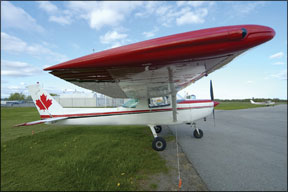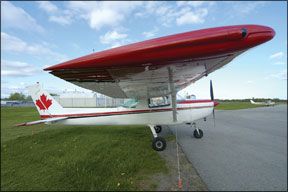In putting together this issue, which includes major articles on flight training and gaining experience, I got to thinking about how I obtained what experience I have. I also got to thinking about all the experience I have yet to obtain. My primary training included at least four different airplanes, five or six instructors and several months. For the next five or so years, I seldom flew enough to stay legally current; forget proficient. As my “career” got going, I had more free time 288 and flying was one way to occupy it; aviating had the added benefit of setting me apart from the masses. It also made for some quick and easy beach and holiday trips. Very soon, an instrument rating was necessary, which I eked out over a year or so, thanks to a veteran ATP/CFII/ABC/XYZ. Then came weather flying, longer trips and the ongoing quest for IFR currency. I rented airplanes for too long, also going the club route, until close friends cut me a smoking-hot deal to use their very clean and nicely upgraded 172. I flew that airplane with great regularity for several years, abandoning it only when the opportunity to own the one I have now came up. Early on, I was scared witless of weather. These days, I come at a proposed trip with healthy respect for weather-related complications. Rather than cancel a trip outright, I look to reschedule it, re-route it or re-think it. Ive been known to sleep in an FBO lounge while thunderstorms raged overhead, my airplane snug in a hangar. Once the storms cleared out, so did I. But I rarely did anything in an airplane without a Plan B, even if the plan was as simple as landing at the closest airport. Many of my “firsts” involved a pilot-friend, a fellow club member or a CFI. The few things I tackled by myself were engaged in only after years of hangar flying-mostly in listen-only mode-and reading magazines like this one on how and how not to do something. Im often asked how a relatively fresh pilot can get experience. Beginning on page 16, Tom Turner answers a related question. On page 4, Rich Stowell discusses some of the things wrong with the ways many of us were trained. Its all of a piece, but only a partial answer to the question. Aviation experience can come in all different shapes and sizes. If, like I was, youre fortunate to have a support group of varying backgrounds and experience levels, you can learn much from them. Its like osmosis or, as one dictionary defines it, “a gradual, often unconscious process of assimilation or absorption.” But you have to listen and think about their lessons. Theres no shortcut to getting experience. And theres no end to learning and gaining it. One of the keys is not thinking you know it all-trust me, you dont, and I dont either-but in listening to those who have seen the movie before. Let 
– Jeb Burnside




